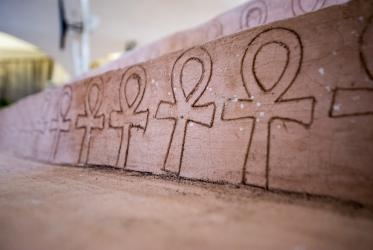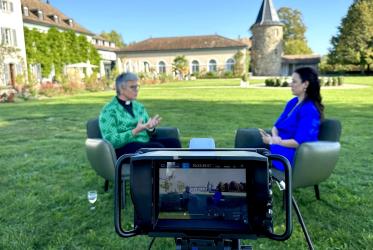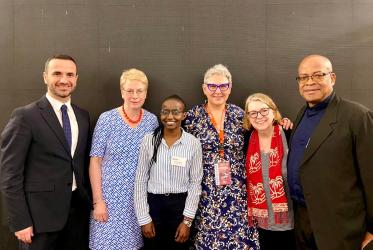After an historic meeting in South Africa in June 2017, study groups within the World Council of Churches (WCC) Faith and Order Commission are using theological reflection as a tool to build unity between churches. The questions Faith and Order considers are not abstract issues but, in many contexts across the world, matters of life and death.
The June meeting near Pretoria held special significance because it was hosted by the Dutch Reformed Church (DRC), which had left the WCC in 1961 due to criticism for its role in supporting South Africa’s apartheid policy.
The DRC rejoined the WCC at Trondheim in 2016.
“We try to learn from the past in the hopes of looking and helping the churches in the future,” explained commission member Prof. Dr Myriam Wijlens (Roman Catholic Church).
Apartheid is a clear example of a specific issue faced by Faith and Order, she continued. “The issue of apartheid is an issue that divided the church in South Africa.”
The commission - a multilateral, global forum of ecumenical theology - is constituted by official representatives of churches belonging to the main historical streams of Christianity, including the Roman Catholic Church. Theologians from 33 countries in five continents consider a wide range of contexts and areas of ecumenical work.
About the Faith and Order study groups
Study Group One, which is focusing on the call to a Pilgrimage of Justice and Peace, has completed a text entitled “Come and See”, which was approved by the commission in Pretoria. Study Group One will next take up two new cutting edge ecumenical challenges: a study on “Proclaiming Peace: Living the Gospel of the Lord Jesus Christ in a Religiously Plural World” and “Ecumenical Theology on Justice for Creation”.
The major task of the Study Group Two is to prepare the ground for a sustained theological dialogue between the so-called “emerging ecclesiologies” and the more historic ecclesiologies mirrored in the WCC text “The Church: Towards a Common Vision” (TCTCV). This is a very important step in the years leading to the next WCC assembly in 2021.
At the same time, Study Group Two continues the analysis of the responses to TCTCV. In the case of the responses, the challenge is to make sure that the results of their analysis will be translated into conclusions about convergence in the common understanding of the church that may lead to concrete signs of growth in communion among churches in the WCC fellowship and beyond.
Study Group Three conducted a survey among the network of ecumenical officers of the WCC member churches, which showed that many churches have a great interest in questions of moral discernment.
The primary work of the group is a study process on the role of authority in moral discernment, which includes the study of the handling of moral discernment in the different church traditions as well as the study of specific historic examples where churches developed their point of view towards a given moral issue.
This study will lead to further insights, which may help the churches to understand their differences in a better way and find grounds for unity.
The three study groups will continue to meet in 2018 as their results and goals evolve.





